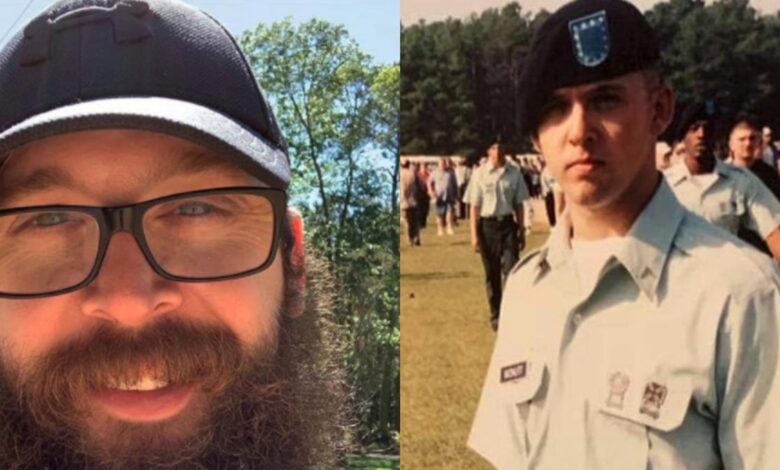Friend challenges Facebook over Ronnie McNutt suicide video

In late August 2020, social media was rocked by the tragic suicide of Ronnie McNutt. Even more disturbingly, his death was broadcast on Facebook Live and quickly went viral. Despite numerous pleas from friends and family members to take down the video, Facebook failed to act – until now. One friend’s challenge has sparked a vital conversation about online safety and responsibility for content sharing. Read on to discover how this brave individual took matters into their own hands and what happened next in this shocking story that highlights the importance of responsible social media use.
Ronnie McNutt’s suicide video
On August 31, 2020, Ronnie McNutt live-streamed his suicide on Facebook. The video quickly gained attention and was widely shared across the platform. The footage remained online for hours despite numerous pleas from friends and family members to take it down.
McNutt’s death sparked a vital conversation about mental health awareness, but also highlighted the dangers of social media platforms that allow such content to be shared so easily. Many questioned why Facebook did not act more quickly to remove the video once they became aware of its existence.
There were concerns that individuals who watched or shared the video may have been negatively impacted by what they saw. Some experts suggested that seeing traumatic images or videos can have long-lasting effects on mental health and wellbeing.
This tragedy is a reminder of how important it is for social media companies to have effective policies in place for removing harmful or sensitive content from their platforms as soon as possible.
Facebook’s failure to remove the video
The tragic death of Ronnie McNutt shook social media users after a video of his suicide went viral on Facebook. Despite numerous reports from concerned individuals, Facebook failed to remove the disturbing footage for hours. This failure highlights the platform’s flawed content moderation system, which allows harmful content to spread quickly without adequate action.
Facebook has faced criticism in the past for its inability to effectively moderate and remove harmful content like hate speech, terrorist propaganda, and violent videos. The company claims it has invested heavily in artificial intelligence (AI) systems to detect such material automatically. However, this latest incident shows that AI is not always enough.
While human moderators are necessary for identifying the most sensitive cases that require urgent attention, Facebook seems to rely too heavily on automation in its moderation process. As a result, they often fail to address offensive or dangerous posts until it’s too late.
Although Facebook eventually removed Ronnie McNutt’s video and expressed condolences towards his family and friends publicly- their delayed response raises important questions about how seriously they take responsibility over their role as a major social media platform with millions of users worldwide.
Friend’s challenge to Facebook
It is no secret that social media platforms, like Facebook, have a responsibility to monitor and remove harmful content from their sites. However, when it comes to the recent tragedy surrounding Ronnie McNutt’s suicide video, Facebook failed to act quickly enough.
One of Ronnie’s friends took it upon himself to challenge Facebook on their inaction. Josh Steen created a video calling out the platform for failing to remove the disturbing footage and urged them to do better. The emotional plea quickly gained traction online and caught the attention of news outlets worldwide.
Steen’s message was clear – this should never happen again. He demanded that Facebook take action immediately and implement stricter policies regarding harmful content shared on their site.
In times like these, it takes courage for individuals like Steen to speak up against large corporations such as Facebook. His efforts shed light on the importance of accountability within social media companies and remind us all that we must hold these platforms responsible for their actions (or lack thereof).
The outcome of Steen’s challenge remains unclear at this time; however, his message has resonated with many who are now calling for increased regulation within social media industries. It is only through collective advocacy that we can ensure tragedies like this never occur again.
The Outcome
After the tragic incident involving Ronnie McNutt’s suicide video, there was a significant outcry from people worldwide to ensure that such content is not allowed on social media platforms. Facebook has since then promised to make changes in its policies and algorithms to prevent similar incidents from happening in the future.
The company stated that it would increase its efforts towards identifying and removing harmful content more quickly, especially when it comes to suicide prevention. It also pledged $2 million towards research on how best to remove such videos or other harmful materials effectively, without causing further harm or trauma.
While these steps are a welcome move by Facebook, it remains unclear whether they will be enough. Social media platforms have long struggled with balancing free speech and protecting users’ mental health online.
It is essential that both individuals and companies continue advocating for better regulation of social media platforms so that tragedies like this don’t happen again. The fight against inappropriate content online requires continued effort from everyone involved – social media giants included- till we can ensure a safer digital space for all users.



